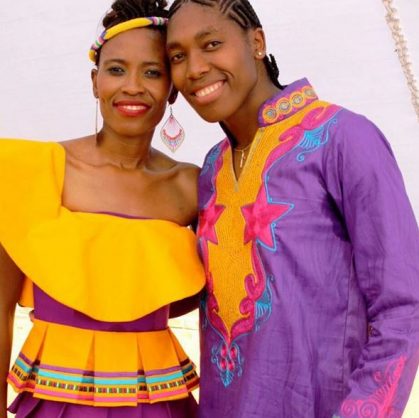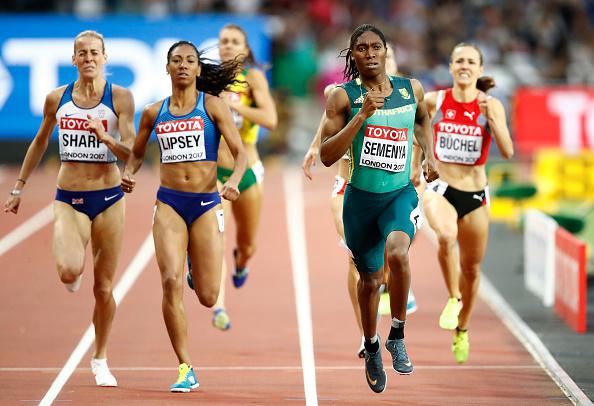- Joined
- Apr 20, 2018
- Messages
- 10,257
- Reaction score
- 4,161
- Location
- Washington, D.C.
- Gender
- Undisclosed
- Political Leaning
- Undisclosed

Highest-level sports' most basic categorization is that of sex. Some sports, boxing and wrestling, for instance, define subcategories within the respective sex groups and others, like baseball, basketball and football don't. Others, such as figure skating, define categories based on sex and age, but demonstrated ability, at the highest level, the Olympics, obviates age.
Caster Semenya is a South African woman who competes in 800-meter foot races. She wins a lot, and people are upset that she's competing with women, however, was born with an anomaly that gives her breasts, a vagina, woman-like body hair, and testosterone levels typical of males; thus she's a naturally big, muscled woman. It really wouldn't matter in what sport she competes with other women; so long as she trains and they don't "juice," she's going to bigger, stronger, faster, etc. than other women who aren't also born as was she.
Well, now the IAAF has ruled that Caster must take meds, testosterone reducing ones.[SUP]1[/SUP] Astounding! After decades of declaring athletes must compete using whatever skills and abilities they can muster based on their condition of birth, the IAAF now deems Caster's birth condition makes her unfit to compete with other women unless Caster submits to medically induced testosterone reduction.
WTH? Seriously? Since when did we deem people born with physical advantages can't compete with their gender peers. Michael Phelps has uncommonly long arms and huge feet. LeBron James is just effing huge, which is is a major advantage in his sport. Were he a swimmer, he'd have a foot on every other competitor solely by dint of his height. Would sports officials declare he had to have height-reducing surgery? Have sports officials insisted Phelps have surgery to make his feet typically sized? Caster, like those men was born the way she is. The difference is that her edge isn't outwardly measurable/observable, other than by the results it yields.
What about how we deal with others born with anomalies? How does sports handle them? The answer is it depends. If the defect is overtly physical to the point that it requires they use man-made devices to compete, they compete in "special" categories, such as Special Olympics. If not, they compete in non-special categories. For instance, an autistic person who may not be able to tie his own shoe or do a host of other things, but who's fast, strong and has outstanding hand-eye skills, thus making him a fine tennis or golf player might well play in "plain old" professional tennis or golf. After all, sports is about being excellent at the game, not being "normal" or able to do anything other than play the game very, very well.
And therein lies part of the dilemma Caster's case raises. In the realm of "daily existence," Caster's anomalous birth circumstance makes her unable to do things the rest of us do. She's cannot procreate, for instance. Typically, we think of that as a handicap, and it is when evaluated against the bar of species perpetuation. In sports, however, her anomaly, as with James and Phelps' anomalies, is a natural advantage. Yet along comes the IAAF declaring, in essence, that she can't make the most of her circumstance and use her advantage, well, to her advantage.
What do I think? I think if the IAAF wants to adjust its rules, it should do so with an effectivity date determine by Caster's retirement from sports. I don't too much care what alterations they make; I just think they shouldn't make them so as to interdict specifically this woman's sports career.
Note:
- Caster has one remaining appeal avenue, a court in Switzerland having jurisdiction over all-things pertaining to international sports.

